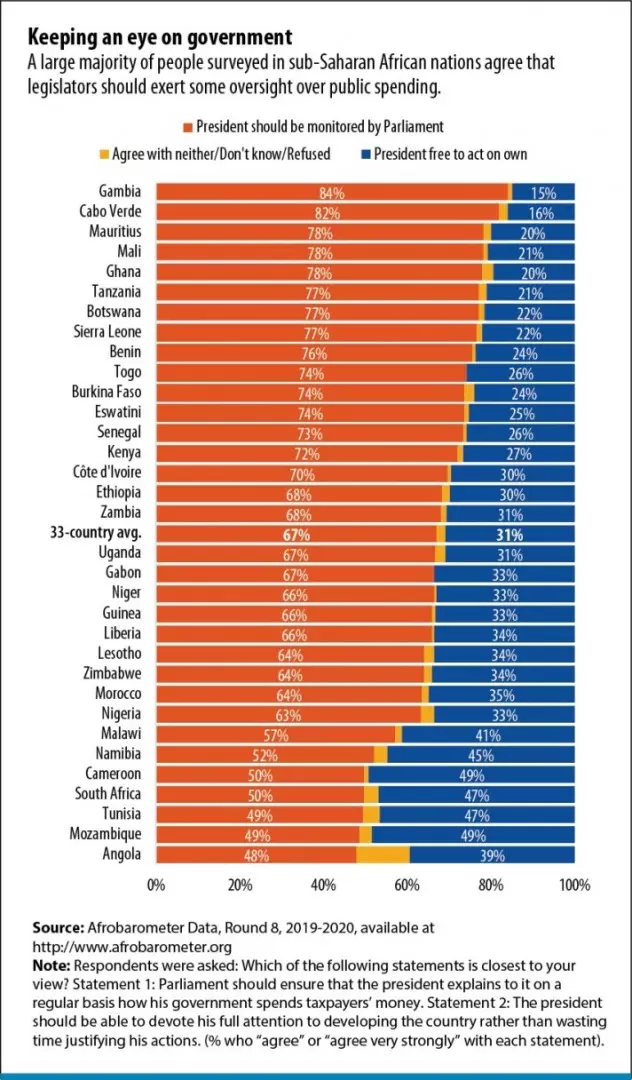Comments
- No comments found

The countries of sub-Saharan African have the lowest per capita GDP and the highest birth rates of any region in the world.
The December 2021 issue of Finance & Development, from the International Monetary Fund, has a series of short articles on some of the challenges and opportunities. Abebe Aemro Selassie offers an optimistic vision in “The African Century” (pp. 58-61). He writes:
The population of sub-Saharan Africa is projected to double from 1 billion to 2 billion by about 2050. This will account for half of global population growth, with the working-age population growing faster than any other age group. These projections—while not uniform across the continent—should be placed in the context of the opposite trend in advanced economies, which typically see aging populations, an inverted population pyramid, and a reduction in population once immigration is excluded. This trend represents perhaps the region’s single greatest opportunity. It embodies a growing pool of human talent and ingenuity coupled with large market size—historically important drivers of economic dynamism.
One possibility here is a happy outcome. Selassie writes:
Fast-forward to 2081. The demographic boom currently unfolding in most sub-Saharan African countries will likely have transformed many of the region’s economies into the largest and most dynamic in the world. Wishful thinking? Perhaps. But 30 to 40 years ago, not many would have thought that possible of China, India, Indonesia, or Turkey. Three factors will have an influential role in making this vision materialize:
• The demographic transition that is underway: By 2050, many sub-Saharan African countries will be among the few with a rising working-age population. Much investment and consumption demand will follow factors which are certain to entice considerable innovation.
• The ongoing digital revolution—which offers much scope for the diffusion of know-how, new business opportunities, and more efficient service delivery.
• How effectively the region’s economies deal with the transition to a low-carbon economy and the adverse consequences that climate change is set to unleash.
Of course, there are no guarantees here. One possibility is that a main consequence of Africa’s high population growth and low levels of economic opportunity will be an extraordinary wave of emigration from Africa to the the European Union and the rest of the world. The chances of a rising standard of living for most of sub-Saharan Africa are linked to the ability of these countries to make the necessary investments in education, health, and infrastructure to provide the basis for future growth.
Ken Opalo discusses these issues in Democratizing Africa’s Public Finance Management: Governments that fail to overhaul taxing, spending, and borrowing could face electoral backlash. Opalo describes the situation this way:
Weak public finance management systems are a significant impediment to economic growth and development in African states. On the revenue side, many African countries underperform on tax collection. In 2018, the average tax collection as a share of gross domestic production in Africa was 16.5 percent–varying from 6.3 percent in Nigeria to 32.4 percent in the Seychelles. On the spending side, weak legislative oversight means that budget appropriation, implementation, and oversight often reflect the priorities of the executive branch. The result: only some of the revenue collected in African states actually reaches the public in the form of public goods and services. Much gets lost to spending on poorly planned “white elephant” projects, corruption, and general waste. As for borrowing, recent increases in public debt in a number of African countries have raised concerns about a lack of transparency and accountability.
Opalo suggests that there is a need to build linkages from additional government revenues to publicly demonstrable spending outcomes. This step will also require additional power for public participation in tax and spending decisions via legislatures, rather than leaving most major decisions up the executive branch. I found this figure to be striking. Opalo emphasizes that most people in most countries think the president should be monitored by parliament. But look at how many African countries where 1/5 or 1/4 or 1/3 or more of the people think the president should just act, unmonitored by parliament!

Other papers in this symposium include:
Timothy Taylor is an American economist. He is managing editor of the Journal of Economic Perspectives, a quarterly academic journal produced at Macalester College and published by the American Economic Association. Taylor received his Bachelor of Arts degree from Haverford College and a master's degree in economics from Stanford University. At Stanford, he was winner of the award for excellent teaching in a large class (more than 30 students) given by the Associated Students of Stanford University. At Minnesota, he was named a Distinguished Lecturer by the Department of Economics and voted Teacher of the Year by the master's degree students at the Hubert H. Humphrey Institute of Public Affairs. Taylor has been a guest speaker for groups of teachers of high school economics, visiting diplomats from eastern Europe, talk-radio shows, and community groups. From 1989 to 1997, Professor Taylor wrote an economics opinion column for the San Jose Mercury-News. He has published multiple lectures on economics through The Teaching Company. With Rudolph Penner and Isabel Sawhill, he is co-author of Updating America's Social Contract (2000), whose first chapter provided an early radical centrist perspective, "An Agenda for the Radical Middle". Taylor is also the author of The Instant Economist: Everything You Need to Know About How the Economy Works, published by the Penguin Group in 2012. The fourth edition of Taylor's Principles of Economics textbook was published by Textbook Media in 2017.
Leave your comments
Post comment as a guest